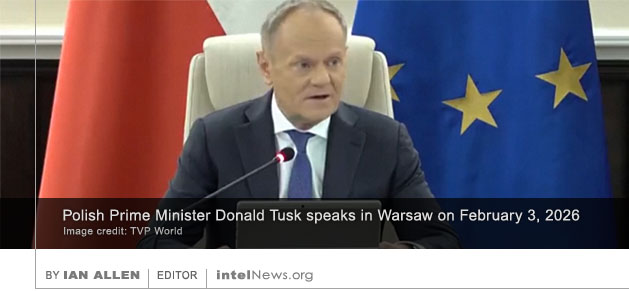Analysis: Escalation Without Endgame and the Limits of Defeating Iran
March 3, 2026 3 Comments
 THE ONGOING CONFRONTATION BETWEEN Iran and its adversaries unfolds against the backdrop of a regime that is strategically depleted yet politically combustible. Yet strategic exhaustion does not equate to imminent collapse. Indeed, the potential degradation of Iran’s coercive institutions raises a more complex question: what follows tactical success? Thus, while Iran appears weakened and vulnerable, the longer-term trajectory of the conflict remains uncertain, fraught with the risk of protracted instability and regional spillover at a level that could make Libya and Syria seem mild by comparison.
THE ONGOING CONFRONTATION BETWEEN Iran and its adversaries unfolds against the backdrop of a regime that is strategically depleted yet politically combustible. Yet strategic exhaustion does not equate to imminent collapse. Indeed, the potential degradation of Iran’s coercive institutions raises a more complex question: what follows tactical success? Thus, while Iran appears weakened and vulnerable, the longer-term trajectory of the conflict remains uncertain, fraught with the risk of protracted instability and regional spillover at a level that could make Libya and Syria seem mild by comparison.
Iran is Strategically Depleted and Vulnerable
Decades of crippling sanctions have ruined Iran’s economy and demoralized its population, causing an already polarized society to further-disintegrate. Outside of a small population of religious zealots, Iranians have little interest in martyrdom, and very few are willing to die for a regime that most see as politically and ideologically bankrupt. The stunning degree of the regime’s penetration by Israeli and American intelligence agencies is indicative of the disillusionment of ruling elites, let alone rank-and-file functionaries.
Militarily, this is hardly a war between equals. Even before bombs started falling in Tehran on February 28, Iran’s armed forces and its elite Islamic Revolutionary Guard Corps (IRGC) had been severely degraded by prior military engagements with the U.S. and Israel. Even with the assistance of its proxies and allies, Iran is demonstrably unable to match the military and intelligence resources of its opponents. As many have noted, Tehran’s retaliatory strikes appear to emphasize economic disruption and psychological pressure on civilian populations. But the marked inconsistency in the scale and delivery of Iran’s retaliatory attacks suggests that it is struggling to respond in a coherent fashion.
Russia, meanwhile, is nowhere to be seen. As in the cases of Venezuela and Cuba, Moscow has restricted its response to this crisis to diplomatic condemnations and offers to mediate, rather than offering military assistance to its Middle Eastern ally. This is hardly surprising, given Russia’s broader strategic priorities and its desire to further its ongoing expansionist goals in Europe by avoid overextension elsewhere.
Iran is weak, exhausted, alone. It is teetering on the edge. Yet, instead of cheering, this appears to trouble even seasoned Iran hawks like John Bolton, Trump’s onetime national security adviser. A veteran Republican, Bolton is probably the most consistent and vociferous Iran critic in the Western Hemisphere. The Iranian government has actively planned to assassinate him in recent years. But in a recent interview, Bolton cautioned about the lack of planning behind Washington’s latest adventurism in the Middle East and waned that the current situation may “deepen conflict, create a dangerous power vacuum, and purge the [entire Middle East] into turmoil”. What is Bolton seeing that Trump’s inner circle is not?
This War Will Not End Soon
American air campaigns have a demonstrated history of obliterating Washington’s tactical targets and severely disrupting its adversaries. Iran is unlikely to prove an exception to this rule. However, air campaigns—no matter how sophisticated—cannot by themselves reorder domestic politics and build long-lasting political outcomes. It follows that, despite delivering a series of indisputable tactical successes, including the assassination of Iran’s supreme leader and senior members of his inner circle, American and Israeli airpower cannot by itself ensure a pro-Western outcome in Iran.
Obliterating the Iranian regime’s military capabilities and degrading its ability to dispense violence against its own population is likely to create a power vacuum. But that is not the same as managing the ensuing political fallout. Even if the regime falls—which is not the likeliest scenario—its successor is unlikely to be friendly to the U.S. or Israel. For over a century, Iran has been permeated by a political culture shaped by fervent nationalism, revolutionary narratives and resistance against foreign intervention. This has been particularly so since 1979, with the theocratic regime building the nation’s identity around the idea of its resistance to the “Great Satan” and its regional allies, including Israel and Saudi Arabia. This identity permeates Iran’s security apparatus, its state institutions and its education system. Even anti-regime Iranians—including the student demonstrators who cheered Ayatollah Khamenei’s demise—espouse core elements of that narrative. Read more of this post
 A CIVILIAN AND A reservist with high-level classified access used Israel Defense Forces (IDF) confidential information to place bets on Polymarket regarding future Israeli military operations. Polymarket is among the most prominent platforms in the rapidly emerging cryptocurrency-based prediction market sector.
A CIVILIAN AND A reservist with high-level classified access used Israel Defense Forces (IDF) confidential information to place bets on Polymarket regarding future Israeli military operations. Polymarket is among the most prominent platforms in the rapidly emerging cryptocurrency-based prediction market sector. FOUR MEN HAVE BEEN arrested in France on suspicion of spying for China using a system of parabolic antennas and computers installed at a rented property in the French countryside. The men were arrested last Saturday and Sunday by the General Directorate for Internal Security (DGSI), which focuses on counterterrorism and counterespionage.
FOUR MEN HAVE BEEN arrested in France on suspicion of spying for China using a system of parabolic antennas and computers installed at a rented property in the French countryside. The men were arrested last Saturday and Sunday by the General Directorate for Internal Security (DGSI), which focuses on counterterrorism and counterespionage.
 AT LEAST THREE EUROPEAN Union members states now require Russian diplomats who are not accredited in their territories to notify them prior to entering their borders. According to the new requirement, Russian diplomats must provide advance notification if they intend to travel to, or transit through, a European Union country in which they are not accredited.
AT LEAST THREE EUROPEAN Union members states now require Russian diplomats who are not accredited in their territories to notify them prior to entering their borders. According to the new requirement, Russian diplomats must provide advance notification if they intend to travel to, or transit through, a European Union country in which they are not accredited. INTELLIGENCE PARTNERS IN THE North Atlantic Treaty Organization (NATO) are “not talking openly” anymore, while authorities in Denmark have advised government officials to disable Bluetooth functions on their devices due to spying concerns. According to reports in British news outlets, intelligence-sharing functions inside NATO are at a breaking point following a series of actions by the United States that one source
INTELLIGENCE PARTNERS IN THE North Atlantic Treaty Organization (NATO) are “not talking openly” anymore, while authorities in Denmark have advised government officials to disable Bluetooth functions on their devices due to spying concerns. According to reports in British news outlets, intelligence-sharing functions inside NATO are at a breaking point following a series of actions by the United States that one source  EARLIER THIS MONTH, FRANCE-based British reporter Chris Bockman was given rare access to a training course designed collaboratively by a leading French university and France’s intelligence services. The course is part of the Diplôme sur le Renseignement et les Menaces Globales (Diploma of Intelligence and Global Threats), which is offered by the Institut d’études politiques de Saint-Germain-en-Laye (known as Sciences Po Saint-Germain), located on the northwestern outskirts of Paris.
EARLIER THIS MONTH, FRANCE-based British reporter Chris Bockman was given rare access to a training course designed collaboratively by a leading French university and France’s intelligence services. The course is part of the Diplôme sur le Renseignement et les Menaces Globales (Diploma of Intelligence and Global Threats), which is offered by the Institut d’études politiques de Saint-Germain-en-Laye (known as Sciences Po Saint-Germain), located on the northwestern outskirts of Paris. IN THE CONCLUDING WEEKS of 2025, the Israel Intelligence Agency (ISA), which serves as its primary internal security and counterintelligence service, experienced two rapturous events that shook the organization to its very foundations. One was the appointment of Major General (retired) David Zini as the organization’s head. The other was the sudden retirement of the its deputy, known as ‘S’ (the first letter of his first name), who had been appointed to that position just two months earlier.
IN THE CONCLUDING WEEKS of 2025, the Israel Intelligence Agency (ISA), which serves as its primary internal security and counterintelligence service, experienced two rapturous events that shook the organization to its very foundations. One was the appointment of Major General (retired) David Zini as the organization’s head. The other was the sudden retirement of the its deputy, known as ‘S’ (the first letter of his first name), who had been appointed to that position just two months earlier. IN LATE NOVEMBER 2025 news broke that the selection for the new director of Austria’s domestic intelligence service, the
IN LATE NOVEMBER 2025 news broke that the selection for the new director of Austria’s domestic intelligence service, the  technology—which earned her the title of an engineer—Mayer joined the Austrian uniformed police in Linz, the country’s third largest city.
technology—which earned her the title of an engineer—Mayer joined the Austrian uniformed police in Linz, the country’s third largest city. A FORMER DEEP COVER Russian intelligence officer, whose cover was blown in 2010 when he was arrested in the United States, is spearheading efforts by the Kremlin to secure investments by India’s technology sector. The spy, Andrei Bezrukov, was recruited by the Soviet Committee for State Security (KGB) in the late 1970s or early 1980s—most likely alongside his wife, Elena Vavilova. For several years, the married couple lived in several countries, including Canada and France, before arriving in the United States in 1999 using fraudulently obtained Canadian passports.
A FORMER DEEP COVER Russian intelligence officer, whose cover was blown in 2010 when he was arrested in the United States, is spearheading efforts by the Kremlin to secure investments by India’s technology sector. The spy, Andrei Bezrukov, was recruited by the Soviet Committee for State Security (KGB) in the late 1970s or early 1980s—most likely alongside his wife, Elena Vavilova. For several years, the married couple lived in several countries, including Canada and France, before arriving in the United States in 1999 using fraudulently obtained Canadian passports. IN A RARE MEDIA interview, the chief of Colombia’s National Intelligence Directorate (DNI) has said that his agency’s collaboration with the Central Intelligence Agency (CIA) and other American spy organizations continues unabated. This statement appears to contradict a prior statement by the president of Colombia, who said his country had stopped all intelligence-sharing with the United States in protest against the lethal targeting of civilian vessels in the Caribbean.
IN A RARE MEDIA interview, the chief of Colombia’s National Intelligence Directorate (DNI) has said that his agency’s collaboration with the Central Intelligence Agency (CIA) and other American spy organizations continues unabated. This statement appears to contradict a prior statement by the president of Colombia, who said his country had stopped all intelligence-sharing with the United States in protest against the lethal targeting of civilian vessels in the Caribbean. FRENCH AUTHORITIES HAVE ARRESTED three individuals and placed a fourth person under supervision after scrutinizing the operations of a humanitarian organization suspected of being a front for Russian intelligence. The arrests were
FRENCH AUTHORITIES HAVE ARRESTED three individuals and placed a fourth person under supervision after scrutinizing the operations of a humanitarian organization suspected of being a front for Russian intelligence. The arrests were  A BRITISH MAN WANTED by American authorities for spying for China, who disappeared along with his Chinese handler while under house arrest, may have managed to escape to China using a private jet, a report claims. John Miller, 63, from Tunbridge Wells in the United Kingdom, was arrested alongside his alleged Chinese handler, Cui Guanghai, in April of this year.
A BRITISH MAN WANTED by American authorities for spying for China, who disappeared along with his Chinese handler while under house arrest, may have managed to escape to China using a private jet, a report claims. John Miller, 63, from Tunbridge Wells in the United Kingdom, was arrested alongside his alleged Chinese handler, Cui Guanghai, in April of this year.






CIA working with Kurdish separatists to foment armed rebellion in northwestern Iran
March 5, 2026 by Joseph Fitsanakis Leave a comment
The nearly 10 million Kurds in Iran are one of the largest ethnic minorities in the country, concentrated in the mountainous western provinces bordering Iraq and Turkey. They are predominantly Sunni Muslims in a country governed by a Shia clerical state, creating both religious and ethnic tension. The central government has generally responded to calls for autonomy by various Kurdish factions with security crackdowns and suppression of dissent. Kurdish regions have been subject to heavy surveillance and military deployment, particularly during periods of regional instability.
British news outlet ITV reports that American and Israeli air strikes have consistently targeted Iranian military installations in western Iran in recent days, in an effort to degrade Tehran’s security assets in the region and provide Kurdish rebel forces with the ability to launch a successful armed campaign. According to ITV, Kurdish rebels have asked Israeli and American forces to provide air cover for an eventual ground campaign—though whether this request has been approved remains unknown.
According to Axios, US President Donald Trump spoke directly with Iraqi Kurdish leaders last weekend, seeking access to Iran’s Kurdish provinces through the Kurdish-controlled autonomous region of northern Iraq. Such access would allow the CIA and US Special Operations Forces to create a supply route for the provision of weapons and other war materiel to Iranian Kurdish rebels. The US president also spoke with at least one Iranian Kurdish leader on Tuesday, according to reports.
CNN said it reached out to the CIA about this story but the agency refused to comment on it.
► Author: Joseph Fitsanakis | Date: 05 March 2026 | Permalink
Filed under Expert news and commentary on intelligence, espionage, spies and spying Tagged with 2026 Iran conflict, CIA, Iran, Kurdistan, News, separatism, United States